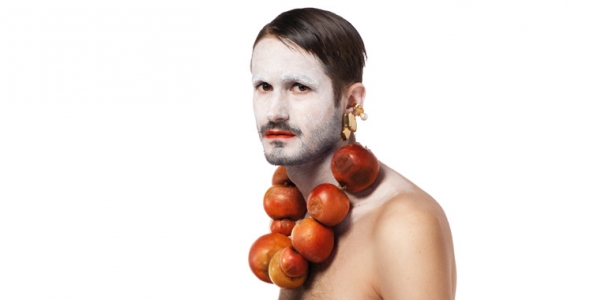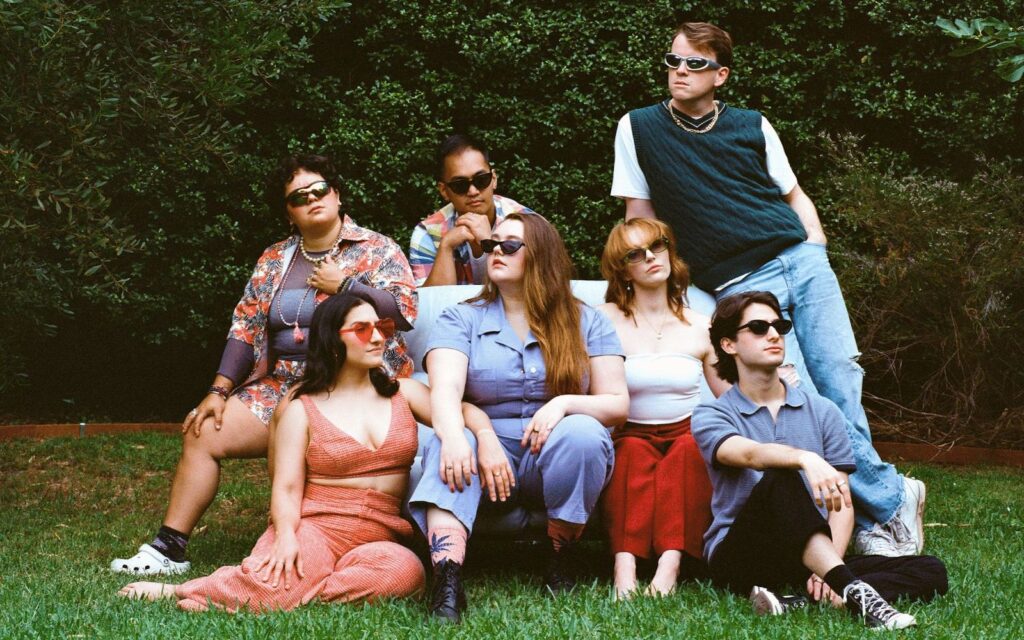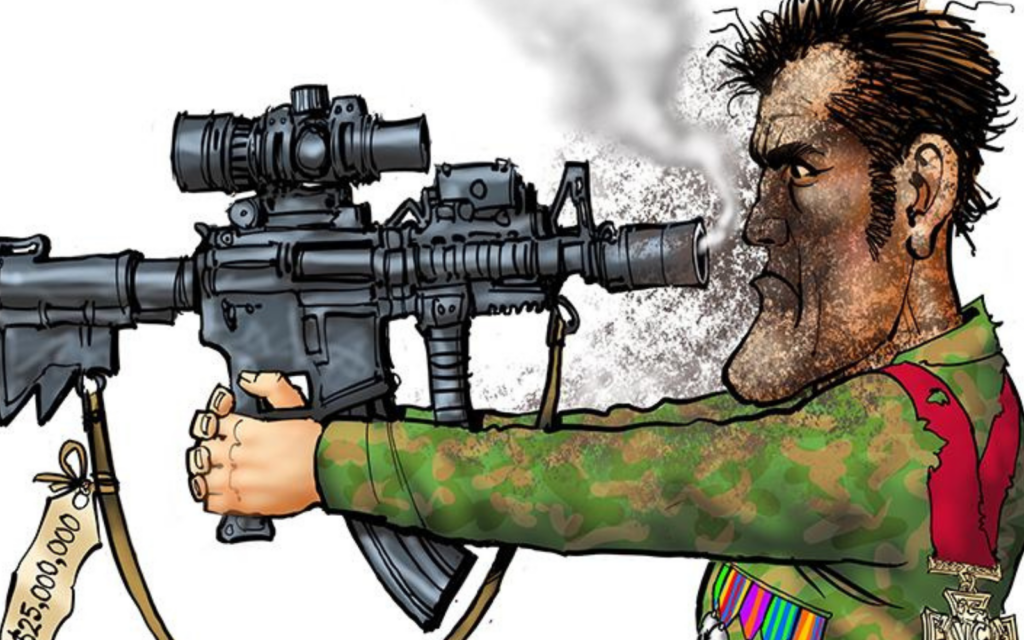The production is the latest offering from The Rabble, a group formed in 2006 by Davies and two colleagues, one of which she’s still collaborating with now. “We were all directors,” she explains. “We created The Rabble to support ourselves and our own work. It’s basically Emma (Valente, co-creator) and I now. It slowly developed and has grown slightly over the years. We mainly use the same actors as we did in 2006, which is incredible.
“We’ve slowly formed this method of creating work. We’d previously worked together for about 15 years anyway, developing this method of devising work on the floor, taking classic texts and then reinterpreting them and re-imagining them in our style. We’re well practised in that now, we’ve really come to a great space with it and have the help of an amazing ensemble of actors. We basically create all the work through improvisation.”
Their latest source of inspiration is Oscar Wilde’s classic, Dorian Gray. “Emma has wanted to do this book for a while,” says Davies of her co-creator. “It’s been on the cards. She’s very connected to it. It’s interesting, I think it’s more about what it interests us to investigate rather than matching a text to our process. It’s more about going ‘what a great launching point is this book’ – all of the themes are very connected to what we’re looking at more generally.”
The work is being described as the result of a melting pot of performance, art, and design, taking part in a purpose-built network of shadowy corridors and mirrored passages. “We’re presenting it in a strange theatrical kind of set-up – the audience looks at themselves, they’re put in that position. The story kind of matched that I guess. The narcissism, the vanity of Dorian Gray, it really spoke to us. It was a great launching point for us to go ‘oh what else can we look at’. The text is not the end, if that makes any sense.”
Davies believes that festivals like the Melbourne Festival help to generate more unique works. “I think that people are maybe a little bit more happy to experiment. I think they’re more accepting of something crazy. Maybe just being a part of the festival is great to push you to make things and dream really big. Maybe it’s a bit more accepted. We don’t know if it’s going to work or not. You never do with any show, but this kind of premise is a big experiment. How an audience might take this kind of experience – it’s really going to range from hating it to loving it, hopefully. Our work is usually taken like that, which I think is great. It creates great dialogue.
“For us it is a big experiment,” states Davies. “This work in particular is very tricky, it’s very different. We’re making such an abstract world. Because it’s slightly immersive we’ve had to get a few test audiences in to experience it and give us feedback on what it’s like. You don’t sit down in an auditorium and watch the show. It’s very particular. We’re still trialling that now. It’s about making it as best as it can be up to opening night. We keep changing, cutting, adding.
“We’ve been rehearsing part-time for about nine to ten weeks. It takes that long because so much of the content is improvisational. Once we’ve collated material and the performance begins to form up. Slowly, slowly, we’re still changing stuff now and we open in a week. The method keeps growing, keeps changing, because it is so organic. It gets to this stage in the process where we’re shifting the order around all the time, cutting and changing. It’s never really done until it’s presented to an audience.”
And what reaction do The Rabble expect from Melbourne audiences? “We’re just completely inside it. It’s very hard to tell what the outcome of it will be. That’s the most exciting and terrifying thing about this kind of process, you just have to trust it. Because there’s no script, because you’re making it on the floor, you never know how it’s going to come out. You never know the end point. If we made it in six months time it would be completely different. The great thing is that not every audience member will have the same experience just because of how it’s set up. Some people will see things and some people won’t. I’m excited to see what that does to an audience of forty.”
BY JOSH FERGEUS







